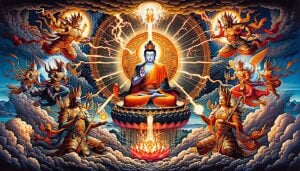Shantideva’s Practical Guide to Developing Compassion from Suffering — “The Way of the Bodhisattva”
By Payal Seth and Tanzin Dakpa
(See bio below feature.)
With reference to The Way to the Bodhisattva by Shantideva, His Holiness, The Dalai Lama once said
“ If I have any understanding of compassion and the practice of the bodhisattva path, it is entirely on the basis of this text that I possess it.”
The Way of the Bodhisattva was composed by an eighth-century Indian Buddhist philosopher Shantideva and is one of the most revered texts in Buddhist literature. It embodies a definition of compassion that is raised to the highest levels and has minutely laid out the methods for us to achieve it.
The ultimate goal of all our actions is to gain happiness and be free from suffering. Yet, suffering is an inevitable part of life.
“If things could be according to their wish,
No suffering would ever come” (6.34)
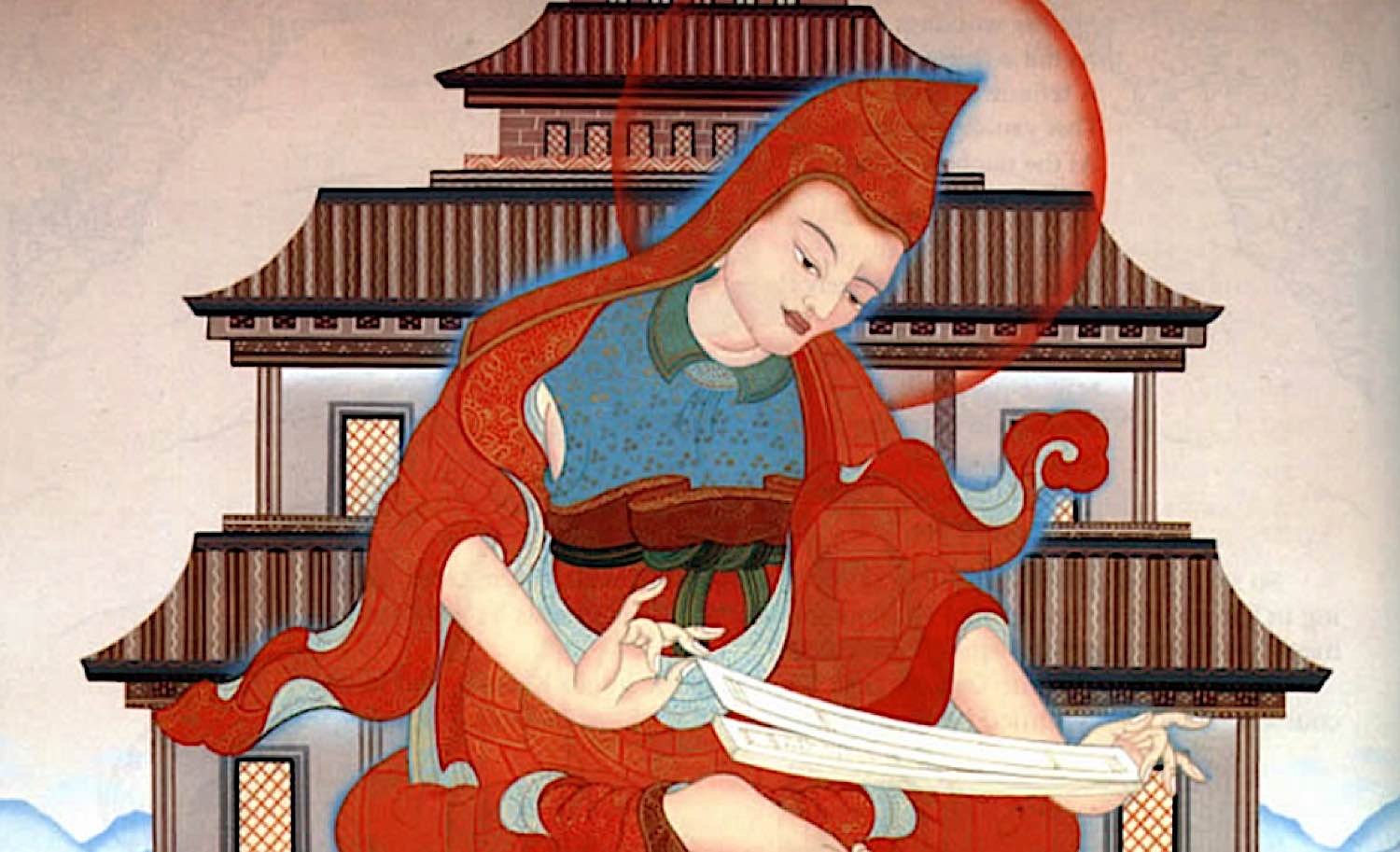
This is where Shantideva tells us that suffering although unwanted has its uses. It humbles our pride and engenders sympathy toward those who are suffering.
“Suffering also has its worth,
Through sorrow, pride is driven out
And pity felt for those who wander in samsara” (6.21)
However, we rarely focus on these aspects when faced with an unpleasant or threatening situation. After all, it seems natural to resent the circumstances or aggressor. In line with the adage “Pain is inevitable; suffering is optional”, Shantideva implores us to shift our perspective from just “our pain” to a broader, more compassionate outlook. He lays down the following practical instructions for us to follow.
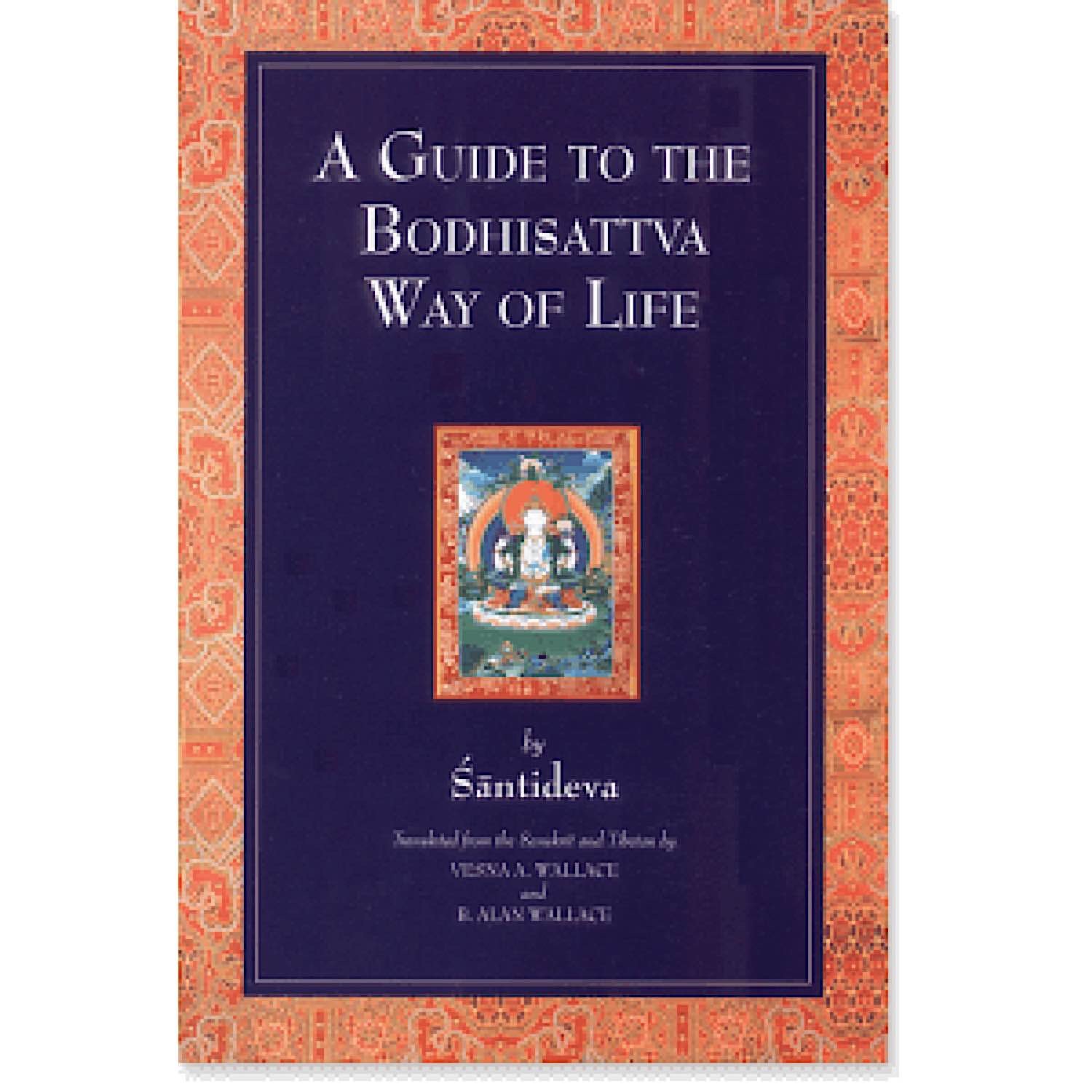
Understand the circumstances behind the suffering
“Thus, when enemies or friends
Are seen to act improperly,
Remain serene and call to mind
That everything arises from conditions.” (6.33)
We have to train our minds to reflect that the hostile behavior of our enemy has also not arisen spontaneously; it is a product of causes and conditions.
What does it mean for us in our daily lives? When someone attacks or criticizes us, we might want to retaliate in anger. Here, Shantideva asks us to accept reality as suffering is an inevitable part of our lives. Our reaction shouldn’t be “How can I escape?”, but rather “How can I build something positive out of it?”.
To this Dalai Lama says, we can ask ourselves that this person is not my enemy by birth. Certain circumstances must have led him/her to behave in this manner. Maybe it was because I had something in the past. When we realize our own part in their anger, then our frustration lowers in intensity. Once we realize that their misbehavior is due to some misunderstanding, then we develop a sense of compassion. We realize how out of control the person is and then our anger is converted to even feeling sorry for their pain and suffering.
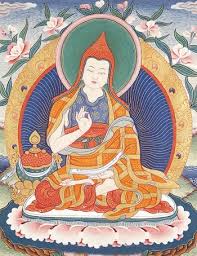
These words have been lived by many great leaders. For instance, Nelson Mandela, of the African National Congress was jailed in his mid-40s for his fight against apartheid in South Africa. He spent 27 years full of hardships and drudgerous labor in jail. While to many it might seem like a waste but this suffering was essential for him to transform from being bloodthirsty to becoming an immensely magnanimous human who was willing to listen to the other side. It helped him realize that the other side that he regarded as his enemy were also human beings who were molded by society and operating from their own fears and expectations. Hence suffering in our lives too helps us put ourselves in the shoes of others.
Karmas have a role to play
It is easier to put suffering in perspective when one deeply understands karma.
“And who indeed should I be angry with?
This pain is all my own contriving” (6.46)“Those who harm me rise against me-
its my karma that has summoned them” (6.47)
Karma is based on the law of cause and effect. So, it is true that our present suffering is the fruition of our previous (mental, verbal, or physical) actions. Hence it is incorrect to claim that the enemy is the aggressor. This understanding can help us cultivate patience in the face of adversity. However, it shouldn’t lead us to the fatalistic interpretation of karma theory: that, whatever happens, will happen anyway, and we have no particular role to play in our lives. Because just as through non-virtuous deeds in the past, one has laid the groundwork for present-day misfortune. Similarly, through virtuous deeds and pure motivation in our present actions, one can ameliorate the manifestation of these consequences and change the future.
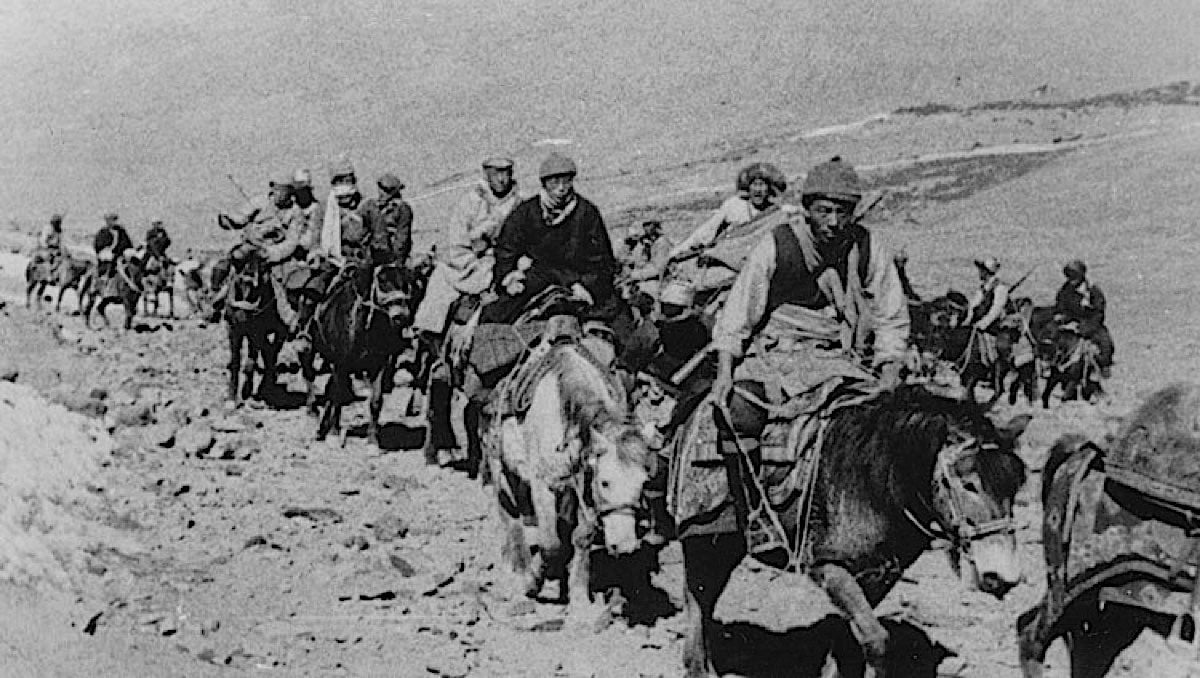
After the Tibet invasion by the Chinese, many Tibetans spent years in work camps where they were cruelly tortured and underwent hard labor. One of them, Lapon-La a senior monk, was among 130 people who were banished to a similar camp. After 18 years, only twenty people survived. It wasn’t the education that ensured their survival, but their warmheartedness or inner spirit. He considered this as the best period for his spiritual practice, for developing patience and kindness. Among all the dangers to his life, he was most scared of losing his compassion for his Chinese guards!

A Buddhist monk of a senior order was aware that it must have been aware that it was his karmas that resulted in this suffering. This helped him accept his situation. But instead of being bogged down with the present circumstance and blaming it all on destiny, he chose the right way of thinking to develop his inner strength and bring forth his innate compassion for the people who were torturing him.
Cherish the enemies
“Because of them and through my patience,
All my sins are cleaned and purified” (6.48)“So like a treasure found at home,
That I have gained without fatigue.
My enemies are my helpers in my Bodshisattva work
And therefore they should be a joy to me.” (6.107)

Shantideva asks us to go a step further and cherish our enemies, as they are our helpers on the path to becoming compassionate people. Our enemies do what no friend or loved one can do. They help us develop our spiritual practice and to cultivate equanimity even in the face of adversity. We need these qualities and they can be only developed in the presence of an enemy. Hence, irrespective of their motivation, from our point of view, they are a blessing. Lapon-La’s fear of losing compassion for his torturers is a prime example of how one could follow this teaching.
Impermanence is the only constant
The first among the Four Noble Truths as taught by Buddha is that life is suffering. His last teaching at the time of his death focussed on the truth of the impermanence that it is the nature of all things to come to an end. Nothing lasts. Recognizing this truth, it becomes easier to accept that this suffering, no matter how daunting, will also pass.
In this context, Dalai Lama recalls, how on the fateful night of 17th March 1959, when all negotiations with the Chinese has failed, he had planned to escape his country. The danger was so imminent that one loud sound or one accidental flashlight would have meant an open fire on him. Upon encountering the possibility of death from so close, he recalled Shantideva’s verse-
“If there’s a remedy when trouble strikes,
What reason is there for dejection?
And if there is no help for it,
What use is there in being glum?” (6.10)
At that moment he told himself, that even if something were to happen to him, it would still be okay.
Rumination on impermanence and Shantideva’s advice can also help us face facts and reality. Now Dalai Lama is able to focus on not what he has lost (his country and home), but on what he has gained: wider contacts, new relationships, less formality, and freedom to discover the world and learn from others. We can respond to situations with courage and calmness rather than letting the situation run wild and exacerbate it further in our heads, which only brings in more fear.
Application of these learnings in my life
These teachings have had a profound experience on my personal life. I was undergoing immense suffering and was at a loss on how to forgive the other party and move on. The Dalai Lama’s interpretation and practice of these teachings gave me a lot of clarity. I shifted my perspective from myself to the other party and understood that beyond a doubt, the other party must be in a lot of pain which led to them to cause me pain. With karma theory, I further understood my role in the circumstances. If I was suffering in this manner, then it means that I must have done a similar deed in the past. A little introspection made this connection very clear. This helped me undertake complete responsibility for my suffering. This is different from blaming oneself and being saddled with guilt. By taking responsibility, I embarked on a newfound resolve to change my future actions for the better.
Because of them, and through my patience,
All my many sins are cleansed and purified. (6.48)
Hence, my suffering awoke me to the reality of my ego-clinging and provided me an opportunity to develop patience along with purification, and exhaustion of evil karma.
But they will be the ones who, thanks to me,
Will have long-drawn agonies of hell. (6.48)
Further, the iron clad of law of karma implies that the other party has sown seeds of inevitable suffering in the future. Hence,
“If I replay them harm for harm,
Indeed they will not be saved thereby.” (6.51)
All these wonderous and logical learnings along with the regular practice of tonglen helped me not just forgive, but also pray for the other party to help them find joy and peace in life.
Suffering can embitter or enoble us
To conclude, suffering, an inevitable occurrence in life has the ability to either embitter us or ennoble us. The difference lies in finding meaning in our suffering. Without meaning, we will become embittered, but once we find some redemption, some shred of meaning, then it can ennoble us. This is where Shantideva guides us.
The shock of suffering fades away our arrogance. It gives rise to compassion for others who are suffering as well. Finally, because of our suffering, we avoid actions that will bring suffering to others. All our heroes mentioned in this article and countless others (including our dear readers) have displayed enormous generosity in trifling times and managed to find meaning in what would have felt like meaningless agony. And that has made all the difference.
Author Bio
Payal Seth is an economist researcher at Tata-Cornell Institute, Cornell University, New York, USA. Tenzin Dakpa is a businessman in London, UK. He was formerly a Buddhist monk. You can read some of their previous features here>>
References
1. The Way of the Bodhisattva by Shantideva. Padmakara Translation Group.
2. The Book of Joy by The Dalai Lama and Archbishop Tutu
3. The Art of Happiness at Work by The Dalai Lama and Howard C. Cutler
4. An Open Heart: Practicing Compassion in Everday Life by The Dalai Lama
More articles by this author
Search
Latest Features
Please support the "Spread the Dharma" mission as one of our heroic Dharma Supporting Members, or with a one-time donation.
Please Help Support the “Spread the Dharma” Mission!

Be a part of the noble mission as a supporting member or a patron, or a volunteer contributor of content.
The power of Dharma to help sentient beings, in part, lies in ensuring access to Buddha’s precious Dharma — the mission of Buddha Weekly. We can’t do it without you!
A non-profit association since 2007, Buddha Weekly published many feature articles, videos, and, podcasts. Please consider supporting the mission to preserve and “Spread the Dharma." Your support as either a patron or a supporting member helps defray the high costs of producing quality Dharma content. Thank you! Learn more here, or become one of our super karma heroes on Patreon.
Payal Seth Tenzin Dakpa
Author | Buddha Weekly
Payal Seth is an economist researcher at Tata-Cornell Institute, Cornell University, New York, USA. Tenzin Dakpa is a businessman in London, UK. He was formerly a Buddhist monk. You can read some of their previous features here>>














